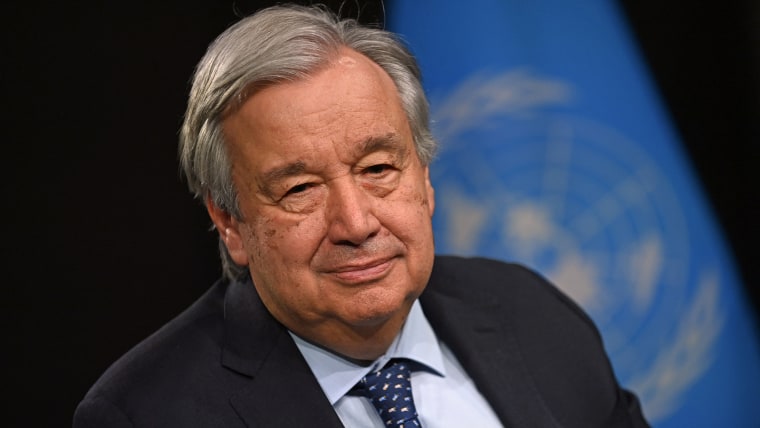Roughly 20,000 people in Gaza have been killed, 70% of them women and children, and more than 53,000 have been injured since Oct. 7, the Palestinian Health Ministry said. Yet on Friday, after a week and a half of grueling negotiations aimed at avoiding a veto from the U.S., the United Nations Security Council passed a resolution calling for aid to Gaza that, strikingly, makes no demands for a cease-fire.
Instead, the resolution calls for “urgent steps ... to create the conditions for a sustainable cessation of hostilities.” It also expresses “deep concern” for the humanitarian crisis in Gaza and stresses the need to adhere to international law.
The resolution passed on a 13-0 vote, with the U.S. and Russia (which wanted stronger language) abstaining.
For days, diplomats had gone back and forth fine-tuning the language in the document so as to pass something — anything — that would not be vetoed by the U.S. The council repeatedly delayed the vote to buy time for negotiations.
The U.S. had previously rejected a draft that called for an “urgent and sustainable cessation of hostilities.” And as HuffPost reported:
In negotiations over the just-passed resolution, American diplomats told foreign counterparts they did not want to veto it but strongly resisted language proposing limits to Israel’s military operation on humanitarian grounds and shifting oversight of aid to the U.N., a step the U.S. has supported in other war zones.
The result is a resolution that Amnesty International said is “woefully insufficient,” and that Doctors Without Borders called “watered down to the point that its impact ... will be nearly meaningless.”
The Biden administration has repeatedly resisted calls for a cease-fire and demands to impose conditions on aid to Israel, even as President Joe Biden cautions the U.S. ally that it may lose international support over its “indiscriminate bombing” of Gaza.
It’s entirely unclear if the resolution will make any difference to the people in Gaza. The resolution calls on the U.N. secretary-general to appoint a coordinator to facilitate humanitarian relief to Gaza and to report back to the Security Council within 20 days.
Security Council resolutions are legally binding, but as The Associated Press reported, “in practice many parties choose to ignore the council’s requests for action.”
Israel’s ongoing military campaign in Gaza is one of the deadliest in modern history. It has dropped hundreds of 2,000-pound bombs in Gaza over the past two months, which experts told CNN has led to the soaring death toll. The New York Times also found that those bombs were used in areas to which Israeli officials had told civilians to flee for their safety.
The humanitarian crisis in Gaza continues to deteriorate further under Israel’s relentless attacks. The U.N. Human Rights Council said that 85% of the population, or 1.9 million people, are displaced internally, squeezed into one-third of the strip. Infectious diseases are rampant, aid groups warned, and more than half a million people in Gaza are starving, with the risk of famine growing every day.

